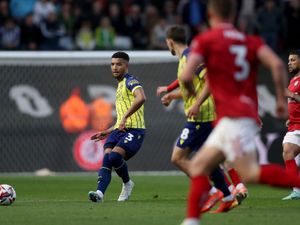Early West Brom ticket sales are ‘very pleasing’
Albion are confident the number of season ticket holders at The Hawthorns will increase next term despite suffering relegation to the Championship.
Chief executive Mark Jenkins slashed ticket prices to their lowest level for a decade and promising renewal numbers suggest the move has gone down well with fans.
The Baggies sold just over 17,000 season tickets for their last campaign in the Premier League, which was up from 16,750 for the year before.
That was the first sales increase for five years following the introduction of an early-bird ticket, but Jenkins went further and slashed the cheapest adult seat by £51.
Thanks to the higher number of games in the second tier, the £329 seat behind the goals works out at £14.31 a game.
His decision to roll out the £49 ticket for under-11s to all corners of the ground has also gone down well.
The Baggies sold more than 19,000 season tickets for 2012/13 and 2013/14 off the back of two top-half finishes, but then that number started to dwindle.
In 2014/15 there were 18,300 and in 2015/16 that fell to 17,925. But the lowest point in recent history came in 2016/17 when just 16,750 season tickets were sold.
It’s hoped the club could get back up to more than 18,000 seats for next season, despite being in the second tier.
“With the way season tickets are going there’s a feeling the club is coming back to a certain level of alignment,” said director of football administration Richard Garlick. “We’re very pleased.”
Renewals have now closed and supporters who wish to change seats can currently request a switch.
Season tickets will then go on sale to new customers on Monday, June 18, and the club are expecting a surge after next season’s fixtures are announce on Thursday, June 21.
Garlick believes the promising sales so far suggests the club is re-forging its link to the community after losing its identity over the past two years.
“That’s what Mark was talking about when he talked about resetting the club,” said the departing director. “Not going back to running it like eight years ago because you’re in a different market now and you won’t survive like that.
“You have to reinvent yourself, but also have certain key things and run it likes a business.
“That doesn’t mean you’re all suits making decisions, but run it in a sensible business point of view.
“Make sensible decisions, joined up decisions and the key thing is make sure everything is aligned from the top – from the owners, to the board to the senior management to the football – all the way down to the academy so that everything is aligned.”





